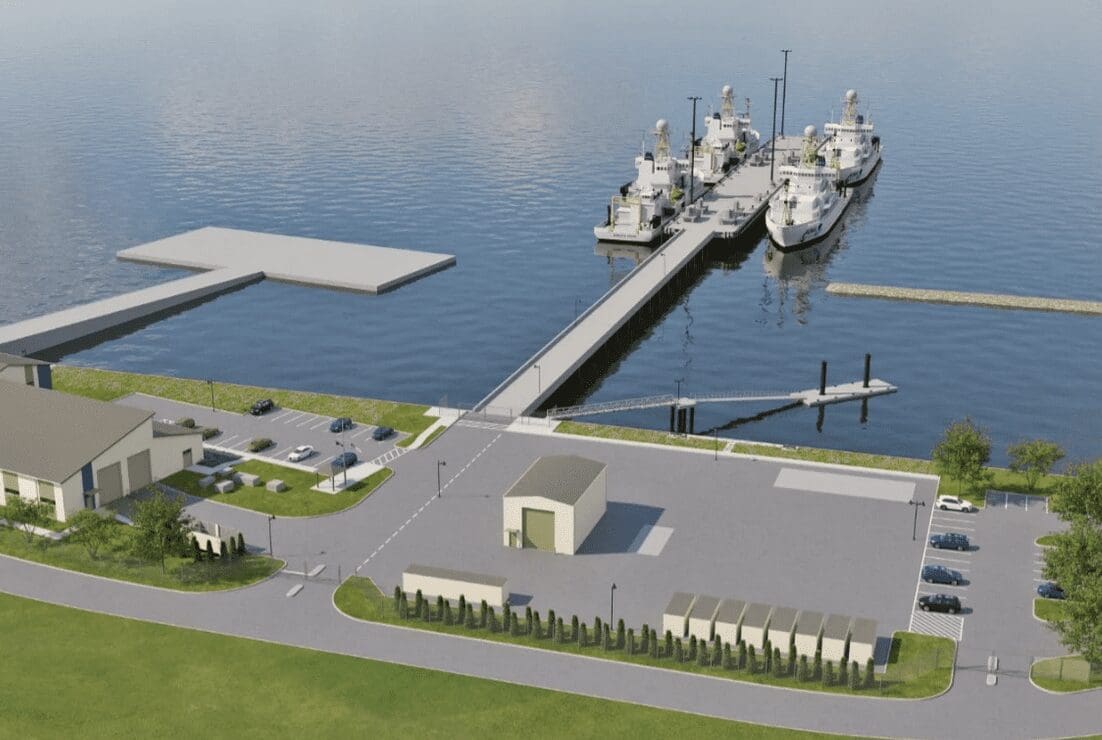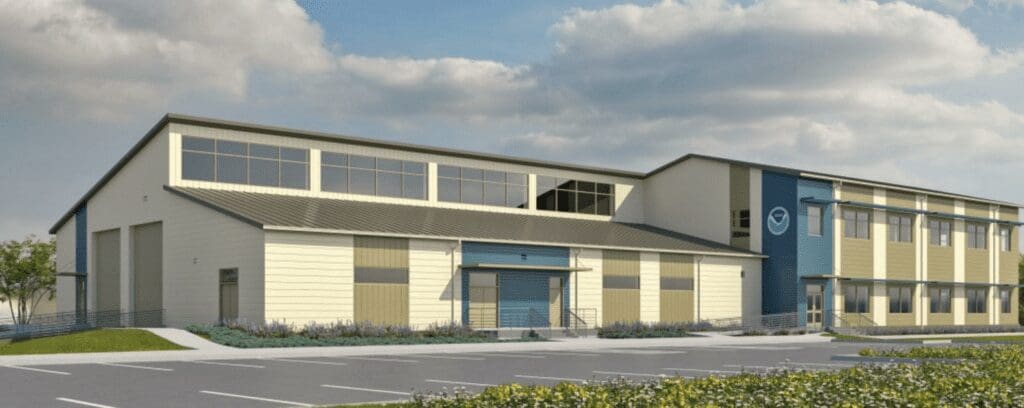Search Posts
Recent Posts
- Out and About in RI: Former Pawtucket Mayor Henry Kinch Tribute in Photos June 24, 2025
- Rhode Island Weather Forecast for January 24, 2025 – Jack Donnelly June 24, 2025
- ART! Mark Freedman, first featured artist of Summer Art Shows at Charlestown Gallery June 24, 2025
- The Bellevue Hotel: Procaccianti Co. New Luxury Boutique Hotel Set for Newport’s Iconic Bellevue Ave June 24, 2025
- Mike Stenhouse, CEO of RI Center for Freedom & Prosperity, named into College Baseball Hall of Fame June 24, 2025
Categories
Subscribe!
Thanks for subscribing! Please check your email for further instructions.

NOAA Marine Operations Center moving to Naval Station Newport
The National Oceanographic and Atmospheric Administration’s (NOAA) Marine Operations Center – Atlantic (NOAA MOC-A) will be moved from Norfolk, Virginia to Naval Station (NAVSTA) Newport in Rhode Island.
U.S. Senator Jack Reed (D-RI), a senior member of the Appropriations Committee and the Chairman of the Senate Armed Services Committee made the announcement Wednesday.
Senator Reed estimates the federal investment in Rhode Island for this project to be about $150 million and forecasts it will bring approximately 200 jobs to Rhode Island and generate economic activity for years to come.
NOAA MOC-A coordinates NOAA’s ships operating in the Atlantic Ocean and Great Lakes and serves as a homeport for some of NOAA’s flagship research vessels. NOAA has long planned to consolidate its fleet and upgrade its facilities.
The new NOAA MOC-A will include the construction of a new pier, bulkhead, and shoreside facilities to support four NOAA Atlantic Fleet research vessels at NAVSTA Newport along with support personnel. NOAA received $240 million in funding which will complete the funds needed to advance construction of the pier, marine operations center, and other NOAA priorities. As a result, NOAA is moving forward with building its new MOC-A in Rhode Island – and other facilities across the nation.

“This is a major win for Rhode Island and our Blue Economy that will help NOAA improve mission fulfillment while achieving savings through consolidation and enhancing collaboration with the Navy, URI, the Coast Guard, and leading ocean scientists and marine businesses. This move will create economic, research, and education opportunities for the federal government and Rhode Island,” said Reed.
“NOAA is the top scientific weather and oceans agency. Bringing NOAA’s premiere research fleet and Atlantic operations center to the Ocean State means hundreds of jobs for Rhode Island and a brighter future for our Blue Economy. Naval Station Newport is a strategic location and the federal investments we’ve made here are really paying off,” said Reed. “Rhode Island will provide NOAA with the infrastructure and skilled marine labor force needed to keep its fleet strong.”
“Landing this new center and research ship base further cements Rhode Island’s place as a hub of ocean research. It expands partnership opportunities, will help attract even more marine trade entities and employers, and generate economic growth for the region. This is a smart investment that will provide an economic lift and add to the marine science, discovery, and innovation of our Blue Economy ecosystem,” said Reed.
NOAA, which is part of the U.S. Department of Commerce, gathers and shares data to better understand and predict changes in climate, weather, oceans, and coasts. NOAA effectively serves as America’s environmental intelligence agency, and is responsible for daily weather forecasts, severe storm warnings and climate monitoring, as well as fisheries management, coastal restoration, and supporting marine commerce.
“NOAA’s work helps us understand the ocean and atmosphere. It helps us make informed decisions and be better stewards of our environment and the future,” said Reed. “Bringing this new NOAA Marine Operations Center – Atlantic to Newport could also lead to the migration of other marine and science-based companies looking to move their businesses. It certainly means more cash in the community. And in addition to NOAA personnel relocating here and a spike in construction work, there will also be an opportunity to add good-paying administrative, engineering, maintenance, and logistical support jobs for Rhode Islanders.”
NOAA’s core mission functions require satellite systems, ships, buoys, aircraft, research facilities, high-performance computing and information management and distribution systems. The agency provides research-to-application capabilities that can recognize and apply significant new understanding to questions, develop research products and methods and apply emerging science and technology to user needs. NOAA invests in and depends heavily on the science, management, and engagement capabilities of its partners. Collectively, NOAA’s organizational enterprise-wide capabilities — its people, infrastructure, research and partnerships — are essential for NOAA to achieve its mission and long-term goals.
Currently, NOAA has two ships at Naval Station Newport’s Pier 2: the 209-foot Henry B. Bigelow (R 255), a fisheries research vessel, and the 224-foot Okeanos Explorer (R 337), for oceanographic research and mapping the seafloor.
A third NOAA ship will be at NASTA Newport: The Thomas Jefferson (S 222) is a 208-foot long deep-water hydrographic survey ship that uses sonar to map the bottom of the seafloor and provides data that informs the management of fisheries, navigation safety, ice models, hydrodynamic models, and geological work.
Additionally, a fourth NOAA vessel, the 244-foot Discoverer, is now under construction in Louisiana, which will come in 2026.
The new 22,219-square foot NOAA facility will be able to support hundreds of NOAA employees and contractors, and future growth. New Pier facilities enable NOAA to consolidate ship operations as well as seawater operations, laboratory, and office space.
The new facility will have a dedicated enclosed small boat maintenance shop to support all of NOAA small boats carried on the larger ships. It will also have a dedicated floating small boat dock with an American with Disabilities Act (ADA) compliant ramp so NOAA can be more inclusive in outreach efforts and in hosting scientists, mariners, and other interested parties. The facility is designed to be climate resilient with a higher deck height adjusted for sea level rise and elevated power mounds to ensure the facility can recover within a short time after a major hurricane.
While NOAA’s research ships will be out at sea far more than in port, NOAA MOC-A is a land-based command center, overseen by a NOAA Corps commanding officer and staff, as well as civilian personnel who provide logistical, engineering, electronics, maintenance, and administrative support to all the ships in NOAA’s Atlantic Fleet. People staffing MOC-A include marine engineers, electrical technicians, medical personnel, budget specialists, human resources, and more who help support NOAA’s mission.
NOAA is headquartered in Washington, DC and is comprised of six major line offices: the National Weather Service; the National Marine Fisheries Service; the National Ocean Service; the Oceanic and Atmospheric Research; the National Environmental Satellite, Data, and Information Service; and the Office of Marine and Aviation Operations.
The NOAA Corps is one of the nation’s seven uniformed services.
Additionally, NOAA will upgrade and expand its Northeast Fisheries Science Center’s (NFSC) Narragansett Laboratory, which is currently located on three acres of federally-owned land overlooking Narragansett Bay, near URI’s Graduate School of Oceanography and in close proximity to several major fishing fleets, including Point Judith, Rhode Island, and New Bedford, Massachusetts.
NOAA will invest $200,000 for the design and construction cost estimate for the expansion of the Narragansett Lab. The expansion will make way for its offshore wind and fisheries science program. Final designs and cost estimates of Narragansett Laboratory renovations will be completed later in calendar year 2023.
In a statement from Keeley Belva, Public Affairs Specialist from NOAA’s Office of Marine & Aviation Operations said, “NOAA has decided to relocate the Marine Operations Center – Atlantic to Naval Station Newport, Rhode Island. At this time, NOAA continues to work closely with the U.S. Navy to finalize plans for the new facility. The request for proposals to execute the construction portion of this project was published on the System for Award Management (Sam.gov) earlier this year.
___

Happy to hear that NOAA will have a stronger presence here on Aquidneck island and will be good stewards of our coastal water! Big win for the area.